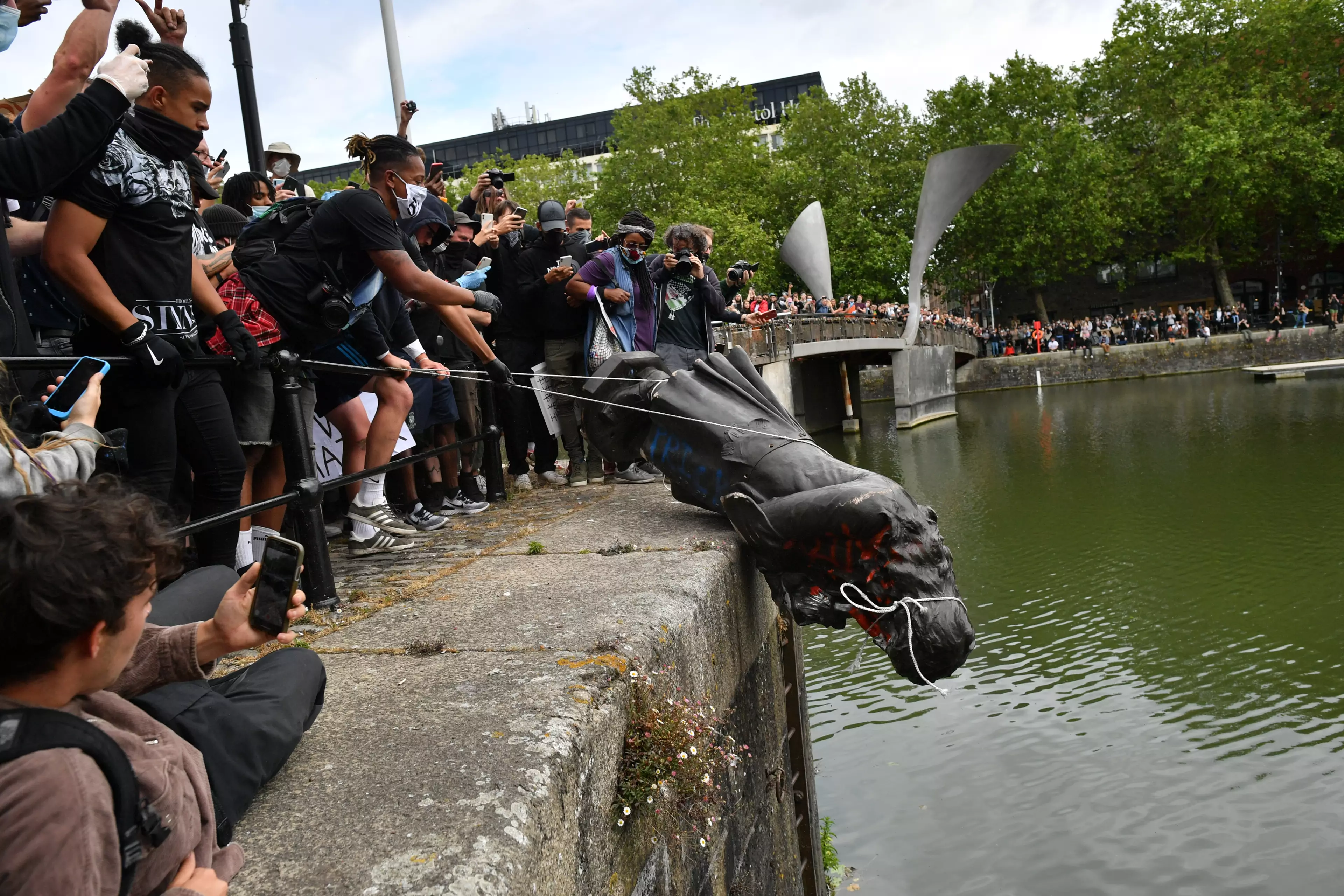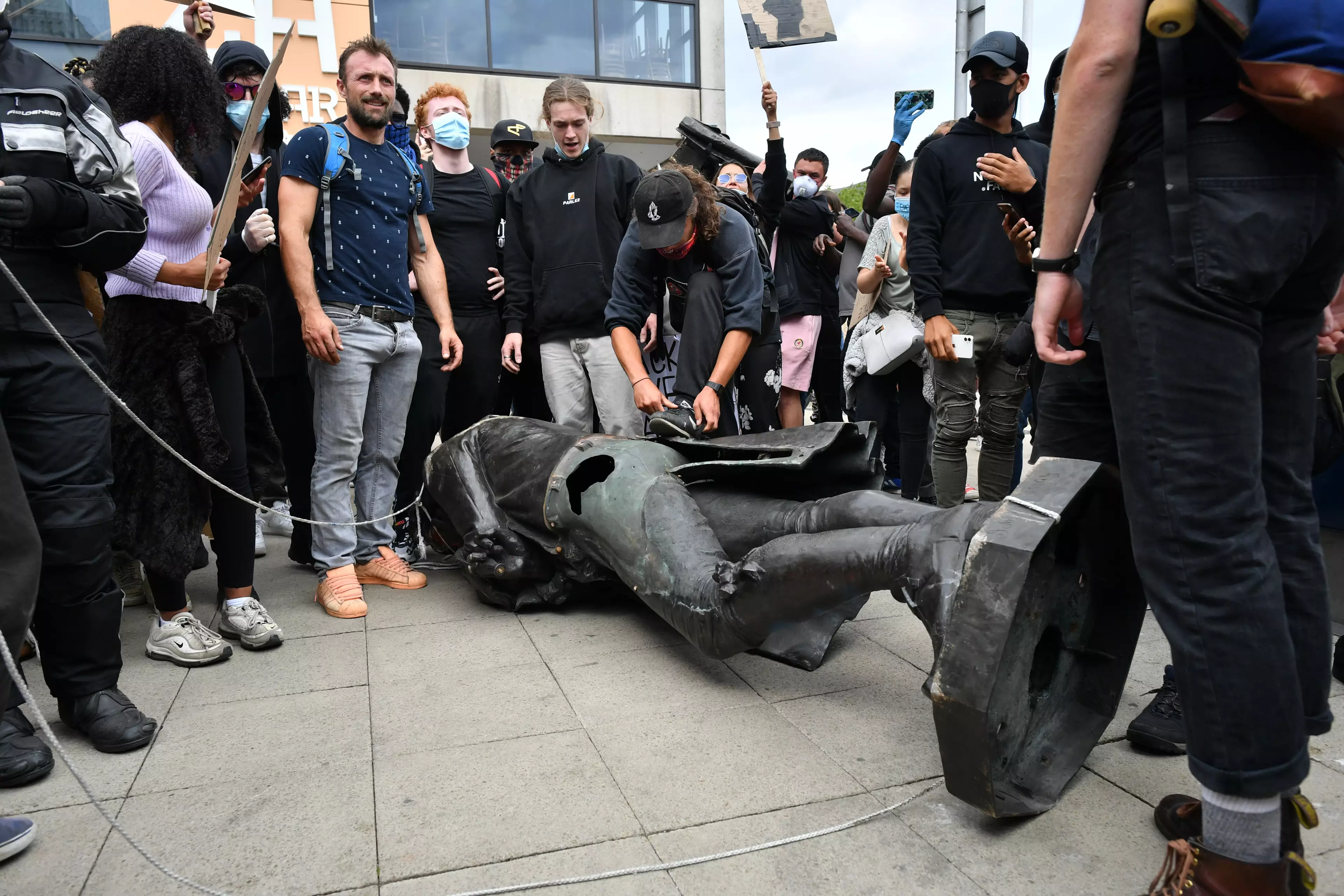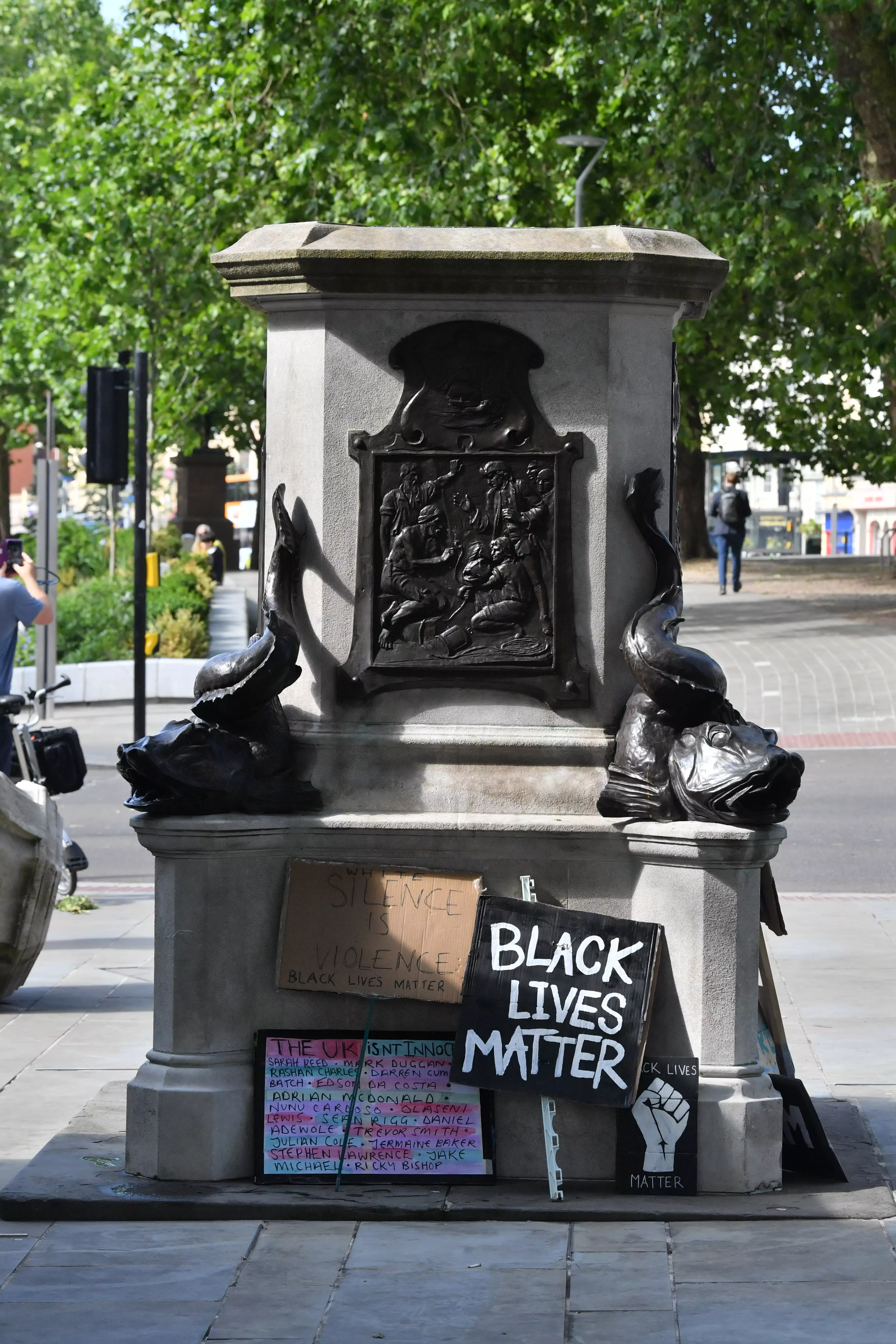
Police have explained why they allowed protestors in Bristol to tear down the statue of Edward Colston yesterday (7 June).
A large group of demonstrators gathered in the city centre over the weekend as part of the Black Lives Matter protests that were going on in various cities across the UK.
Advert
During the protest, the 125-year-old statue of the 17th century slave trader, who is believed to have been responsible for the deaths of around 30,000 slaves shipped from Africa to the Americas, was pulled down and thrown into the harbour.
Superintendent Andy Bennett of Avon and Somerset Police said officers decided not to intervene as they were concerned it may have caused more violence and disorder.
Speaking to the BBC, he said: "We know that it has been an historical figure that has caused the black community quite a lot of angst over the last couple of years.

"So whilst I'm disappointed people would damage one of our statues, I do understand why it has happened, it is very symbolic.
Advert
"You might wander why we didn't intervene and why we just allowed people to put it into the docks.
"We made a very tactical decision that to stop people from doing that act may have caused further disorder and we decided the safest thing to do in terms of our policing tactics was to allow it to take place."
Adding: "Our policing style from the outset was low key, we were not able to get to the statue in time to protect it and once it had been toppled there was clearly a pre-planned attempt to bring that down, they had the ropes and they had the right tools.
"So once it was down we made the right decision which was just to allow it to happen because what we did not want is tension.

"I understand why people think we should have intervened and challenged but this was a very difficult policing operation, there's a lot of context that sits around it and I believe we did the right thing."
Advert
But it is not just the statue that bears the name of Colston in Bristol. In 2017, it was announced that Colston Hall - a music venue in the city - would be renamed ahead of the events space reopening in 2020.
As well as this, Colston's School, an independent school in the city, was founded by the slave trader in 1710. It was renamed Cotham Gardens Primary School in 2018.
The removal of Colston's monument in the city centre has now sparked fresh debate around Britain's relationship with it colonial past, with other councils being urged to look at statues in their towns and cities.
Featured Image Credit: PATopics: Black Lives Matter, UK News